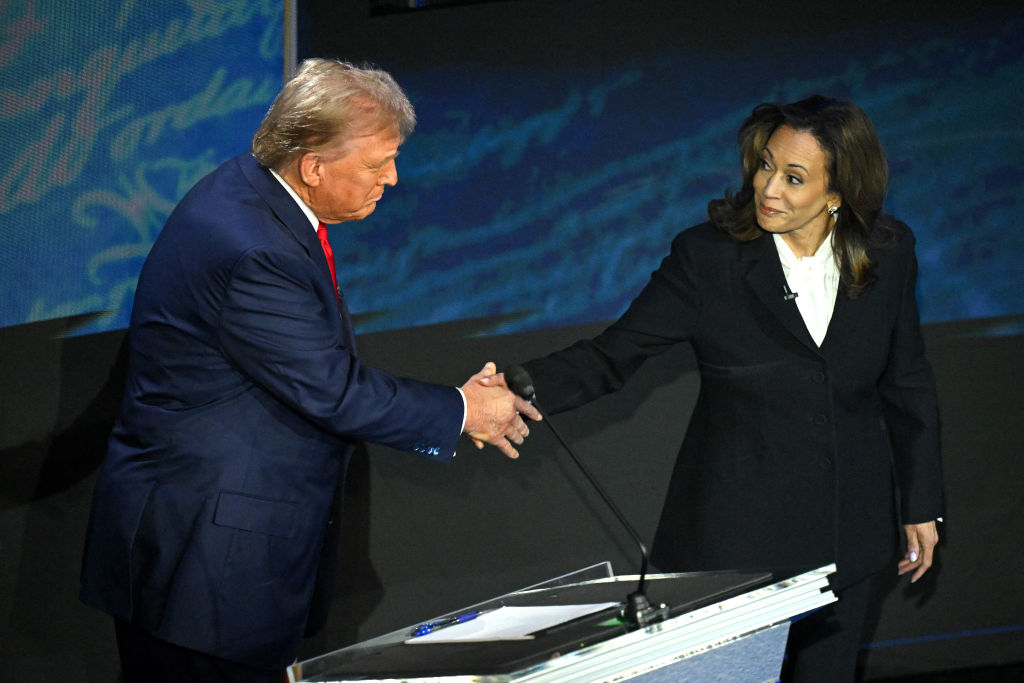During Donald Trump’s recent shift at McDonalds, a $35-trillion burger was not on the menu, but that is precisely what the United States will be feasting on regardless of who becomes president in January.
Long on an upward trajectory, federal debt has exploded since the Covid-19 pandemic, from about $23 trillion at the end of 2019 to around $35 trillion today. Turning to the debt as a percentage of the national economy reveals how the shocks of the 2008 financial crisis and the pandemic have caused a fiscal spiral. Since 2007, the federal debt has soared from 34% to 95% of GDP.
These debt pressures represent not just heartburn around the corner but real fiscal challenges today. For example, the interest rate hikes rolled out to tame inflation have made interest payments on the debt explode. According to the Office of Management and Budget, interest payments on the debt have jumped from 1.5% of GDP in 2021 to an estimated 3.1% of GDP in 2024. The OMB projects that the United States will soon spend more on servicing the national debt than on defence. Interest payments risk crowding out other spending priorities, with potentially major implications for domestic and international policy.
Throughout his presidency, Joe Biden has managed the tensions of his coalition through a series of trillion-dollar annual deficits, and his administration projects sky-high deficits for as far as the budgetary eye can see. However, the 2025 expiration of many of the individual tax cuts from Trump’s Tax Cuts and Jobs Act means that Biden’s successor — whether Trump or Kamala Harris — will immediately be dealing with a ticking fiscal time bomb. If those tax cuts are allowed to lapse, many families could see their taxes jump, but extending them could put further pressures on federal coffers. The debate over the renewal of the Tax Cuts and Jobs Act could lead to a bigger showdown about the budget itself.
Coping with the national debt could expose fractures in both coalitions. As part of the party’s play for upper-income voters, Democrats have pledged to wall off an increasing portion of the population from any tax increase. Harris has promised that voters making under $400,000 annually would not see any net tax increases under her presidency. Yet she has also rolled out a number of expanded social programmes and subsidies. Trying to do both means either increasingly onerous taxes on upper-income earners or adding even more to federal deficits. Certain policies proposed by progressives to fund this new spending, such as a tax on unrealised capital gains, could prove very disruptive.
The Tax Cuts and Jobs Act was one of the signature policies of Trump’s administration, and he has made tax cuts the centrepiece of his 2024 campaign, too. He has run on exempting tips as well as Social Security benefits from federal taxes, and he is considering exempting police, firefighters, and active-duty military from federal taxes. In a decisive break with the GOP of Paul Ryan’s day, Trump has dismissed concerns about the deficit and the looming exhaustion of the trust funds for federal entitlements. That rejection of austerity politics has been crucial for redefining the GOP as a working-class party.
However, dollars and cents eventually claim their due. Some congressional Republicans remain concerned about the debt trajectory, and even some “realignment”-minded wonks have called for a return to some kind of fiscal restraint. To combat deficits, Trump has said he would anoint Elon Musk to lead a commission to identify inefficiencies in the federal government, but it remains to be seen whether those savings would be enough to right the fiscal ship. Trump has also mused about using tariffs to address the federal deficit, but Republicans likely cannot rely on tariffs alone.
Theoretically, a politics that empowered working-class voters could help address these fiscal challenges. That upward mobility would generate more tax revenue as well as lighten demands on the social safety net. A renewed sense of economic optimism could also help make it easier for policymakers to forge a grand bargain on federal entitlement programmes. However, if the United States cannot put its fiscal house in order, it risks more disruption at home and abroad.











Join the discussion
Join like minded readers that support our journalism by becoming a paid subscriber
To join the discussion in the comments, become a paid subscriber.
Join like minded readers that support our journalism, read unlimited articles and enjoy other subscriber-only benefits.
Subscribe